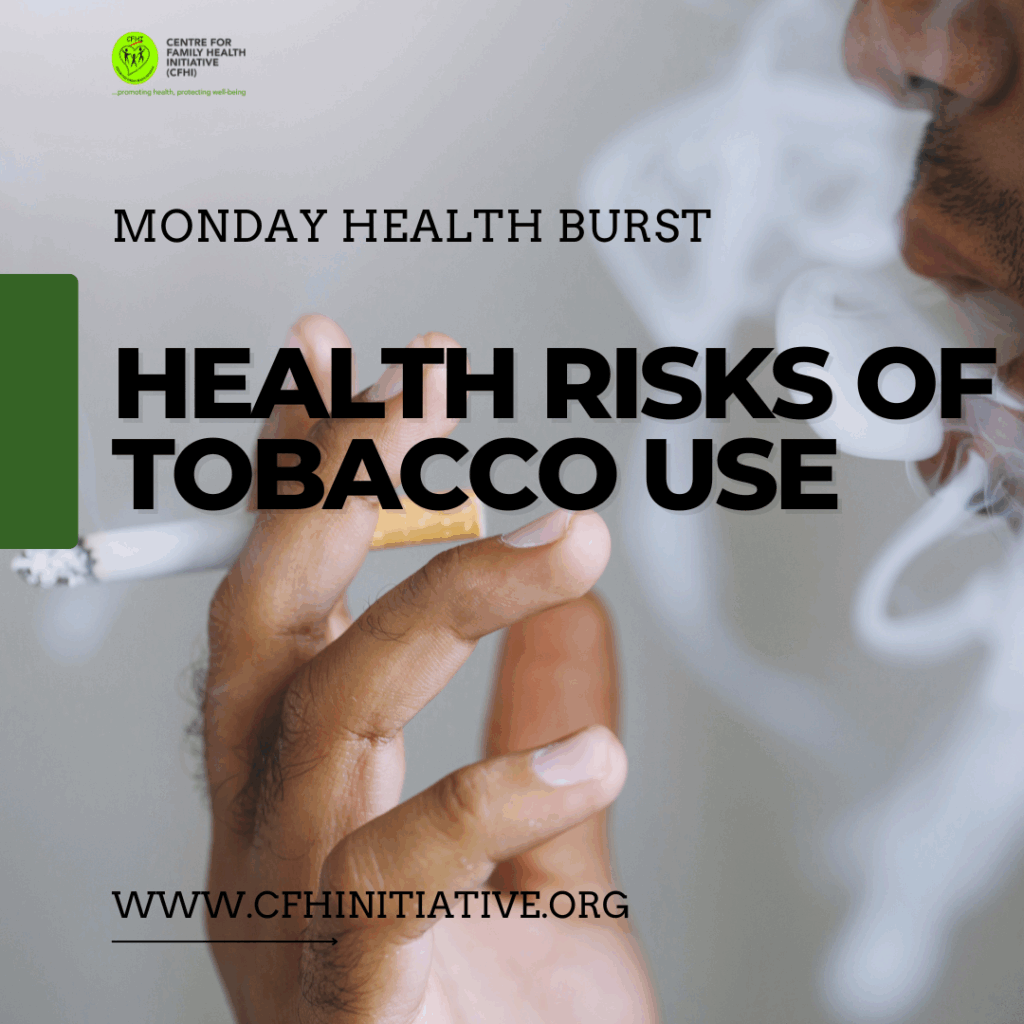According to the World Health Organization (WHO), The tobacco epidemic is one of the biggest public health threats the world has ever faced, killing over 8 million people a year around the world. Tobacco use poses severe health risks not only to users but also to those exposed to second-hand smoke. Despite global efforts to reduce its consumption, tobacco remains a leading cause of preventable diseases and premature death.
Understanding the dangers of tobacco is crucial to protecting public health. Below are some of the major health risks associated with its use:
Lung and Respiratory Diseases
Tobacco damages lung tissue and airways, increasing the risk of Chronic Obstructive Pulmonary Disease (COPD), chronic bronchitis, and emphysema. It also worsens asthma and makes the lungs more susceptible to infections like pneumonia and tuberculosis.
Cancer
Tobacco is a major cause of multiple types of cancer, including those of the lung, mouth, throat, oesophagus, pancreas, bladder, kidney, and cervix. This is due to the carcinogenic substances in tobacco products and smoke,
Cardiovascular Damage
Tobacco use increases the risk of heart disease, stroke, and peripheral artery disease. It narrows blood vessels, raises blood pressure, and reduces oxygen supply to vital organs.
Reproductive and Prenatal Health Risks
Tobacco harms reproductive health. It can cause infertility in both men and women. In pregnant women, it increases the risk of miscarriage, stillbirth, low birth weight, and premature delivery.
Oral Health Issues
Users of tobacco face an increased risk of gum disease, tooth decay, tooth loss, and oral cancer. It also causes persistent bad breath and delayed healing after dental procedures.
Harm from Second-hand Smoke
Second-hand smoke puts non-smokers at risk of serious health issues, including heart disease, lung cancer, asthma, and sudden infant death syndrome (SIDS) in infants. Children exposed to smoke are more likely to suffer respiratory infections and developmental delays.
Tobacco use remains a significant threat to global health. The good news is that quitting tobacco has immediate and long-term health benefits. Through public awareness, supportive policies, and community engagement, we can reduce tobacco-related harm and move toward a healthier, tobacco-free future.
Reference:
World Health Organization. Tobacco. Available at: https://www.who.int/news-room/fact-sheets/detail/tobacco (Accessed May 2025).



